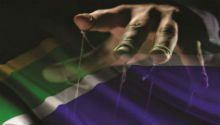
Gastbeitrag auf News24 im Rahmen der Global Investigative Journalism Conference 2017 in Johannesburg.
African investigative journalists face a slew of challenges, with physical danger topping the list. "The reality is investigative journalism is dangerous here," declared Paula Fray, MD of the pan-African media training organisation frayintermedia.
A strong point of group consensus: investigative journalists working in less difficult conditions can learn a lot from how their African colleagues handle the challenges they encounter.
"Sorry to tell you, but Donald Trump is actually only the mini version of Jacob Zuma," said Sam Sole, a South African journalist who has worked in Southern Africa for 30 years.
Sole identified the lack of financial resources as a source of investigative journalism's problems throughout the region during the past decade.
Even wealthy and established media outlets and publishers have cut their investigative departments' budgets. Sole previously worked for the financially stable Mail & Guardian, which is jointly owned by a Zimbabwean publisher and the British-based newspaper, The Guardian.
"But even there, we felt the economic pressure," Sole said.
Investigative journalism in Africa is also facing an tremendous brain drain, according to veteran Nigerian reporter Dapo Olorunyomi. He has witnessed journalists' migration since he started reporting on Nigeria's military dictatorship in the 1990s.
Low salaries and little job security are a recipe for journalists' becoming susceptible to bribes. "The system is broken," Olorunyomi said. "Many journalists are exhausted. Even the most passionate and talented ask themselves if this is this really what they want to do."
Kenyan journalist Catherine Gicheru said that for many African journalists the existence of data tools does not guarantee their utility. "I hear about all [these] beautiful data tools," she said. "But I spend the most time looking for the actual information because I still have to go through books and printed documents."
For Gicheru, investigative Journalism is still about talking with sources. "We have to do what I call 'old school'," she explained.
Zambian television journalist Mwape Kumwenda said she is battling on two fronts.
Her undercover reporting that exposed the government-sanctioned killings of more than 20 inmates at the Mukobeko Maximum Security Prison in Kabwe could lead to her being arrested by government authorities. The second obstacle comes from within the newsroom, where one of her editors urged her not to publish the story because of its potentially damaging content.
"We cannot even trust our own editors," she said. "I'd not keep my investigation files at the office, but instead take them home."
George Lugalambi, a Ugandan researcher and media development specialist, cited the emotional tightrope investigative journalists sometimes walk.
"The most effective reporting you sometimes can't do without losing the distance to the people suffering," he explained. "But if you invest emotions, you get pulled in the story."
The manner in which many African journalists handles these present and historic challenges could instruct their colleagues in other parts of the world.
"We come from a total anti-experience," Sam Sole explained. "Anti-apartheid, anti-establishment. Our whole relationship with the government makes us very skeptical towards any kind of power."
Original
